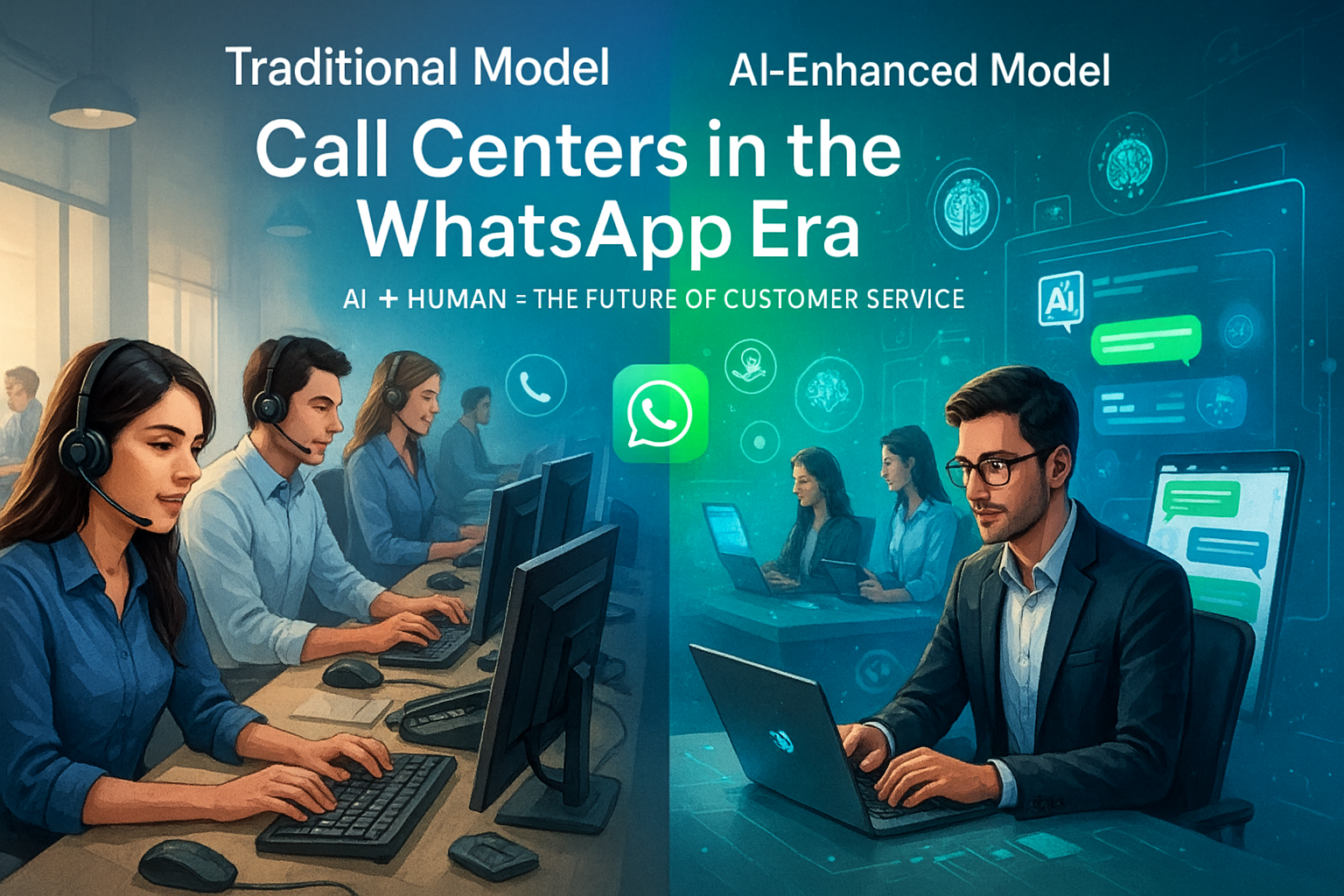As customer expectations evolve in the WhatsApp era, your team is faced with a pivotal question: Are traditional call centers still relevant, and how will AI reshape their role? While messaging apps offer convenience, human agents remain essential for emotional support and complex scenarios. Understanding how AI best augments—and doesn’t replace—human capabilities is key to crafting a winning, future-ready support strategy.
Will Call Centers Survive? The Role of WhatsApp and Modern Messaging
Messaging platforms like WhatsApp have certainly changed how customers interact with brands, offering instant, convenient touchpoints. They’ve broadened communication channels—but they haven’t eliminated the need for call centers. High-stakes issues, emotional conversations, and complex troubleshooting still often require real human empathy and real-time interaction.
Can AI Replace Human Agents? The Real Story
AI is not replacing call center agents outright but is transforming their roles by automating routine tasks like FAQs, routing, and summarizing interactions. Human agents remain indispensable for handling emotionally sensitive, complex, and ambiguous scenarios, where empathy and judgment are irreplaceable. Organizations adopting a hybrid model—where AI supports but doesn’t supplant human agents—report boosts in productivity, customer satisfaction, and retention.
Key Considerations for AI Transformation in Call Centers
Hybrid Human-AI Model
AI works best as an assistant, not a replacement. The goal should be to create synergy—where machines handle repetitive work and humans step in for complex or sensitive cases
- Use AI to streamline call routing and FAQs
- Empower agents with AI-driven insights during live interactions
- Ensure clear pathways for escalation to human support
Skill Reskilling
As AI handles repetitive tasks, agents’ roles shift toward more strategic and human-centric skills. Teams need to focus on developing emotional intelligence and technical fluency
- Train agents in empathy-driven communication
- Provide upskilling in AI tool usage and data interpretation
- Encourage adaptability to changing workflows
Customer Trust & Human Access
Customers may prefer AI for speed but still demand human availability when stakes are high. Building trust requires transparency and easy access to live agents
- Provide clear options to connect with humans
- Maintain transparency on AI’s role in customer interactions
- Balance efficiency with human empathy
Operational Efficiency
AI’s strength lies in automation, which frees agents to handle more nuanced issues. Efficiency gains must translate into better service, not just cost reduction
- Automate transcription, sentiment analysis, and after-call summaries
- Use predictive AI to anticipate customer needs
- Measure outcomes beyond cost savings, focusing on satisfaction
Ethical & Social Impact
AI adoption in call centers isn’t just technical—it’s cultural and social. Workforce reduction fears must be addressed with transparency and responsible transformation.
- Communicate openly about AI’s role and impact
- Ensure job transitions include retraining opportunities
- Adopt ethical AI policies for fairness and accountability
Conclusion
AI in Call Centers WhatsApp Era are far from obsolete—they’re evolving. AI will continue to streamline workflows, automate mundane tasks, and enhance efficiency. However, humans remain central, delivering empathy, nuanced reasoning, and trust. The frontline of customer experience will be led by a collaboration where AI empowers agents—enhancing their ability to resolve complex issues and build meaningful relationships.

